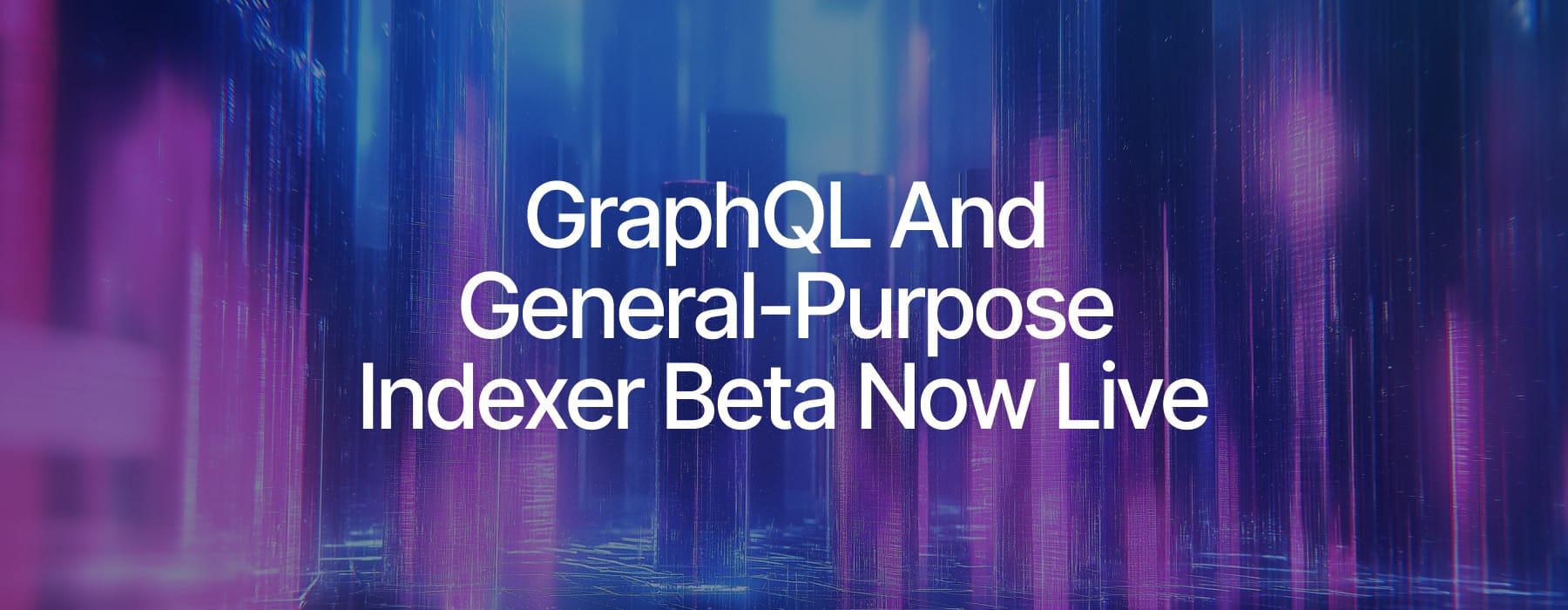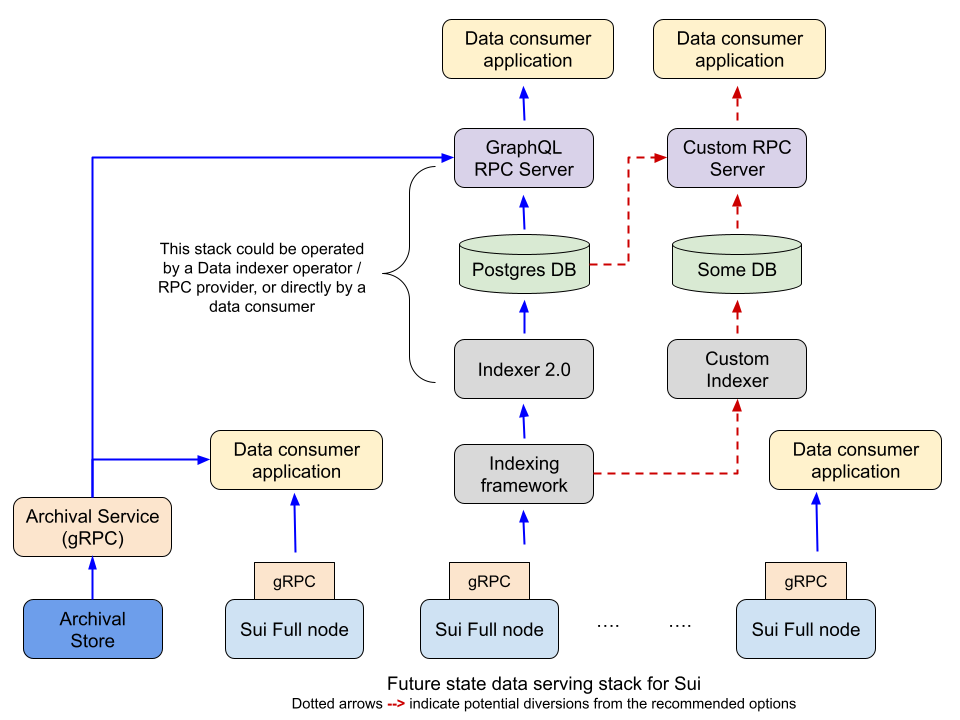Introducing the GraphQL RPC and General-Purpose Indexer Beta: A Richer Data Layer for Sui
GraphQL RPC and the General-purpose Indexer beta make accessing and building with Sui data simpler and more powerful.

Sui now supports GraphQL RPC and a General-purpose Indexer in public beta, unlocking powerful new capabilities for structured onchain data access. This release is a major step in our broader mission to evolve the Sui data stack, giving developers, indexer operators, and data providers more scalable and expressive tools to interact with blockchain data.
Unlike traditional JSON-RPC, which was designed for low-level Full-node-based interactions, GraphQL offers a high-level query language built for developer productivity. Paired with a modular, checkpoint-driven General-purpose Indexer, it makes querying and building with Sui data dramatically simpler.
A smarter layered data stack
Sui is rethinking how developers access blockchain data through a layered approach.
At the foundation are gRPC APIs, which offer fast, polling-based, and real-time streaming capabilities for latency-sensitive apps and services. On top of this sits GraphQL RPC with General-purpose Indexer, providing structured, filterable, and composable access to historical and live onchain data, making it a natural fit for wallets, explorers, and structured data applications. Developers can also extend the stack with Custom Indexers, enabling purpose-built pipelines for app-specific or protocol-specific logic.

The GraphQL and General-purpose Indexer stack introduces the second pillar in this model, designed for rich data queries across wallets, dashboards, explorers, and apps. To learn more about which data access method suits your use case, visit the Data Serving Guide.
What GraphQL RPC brings
Unlike traditional JSON-RPC, which was built for low-level Full-node interactions, GraphQL RPC offers a high-level query language that boosts developer productivity. With this release, builders gain clear advantages:
- Declarative queries: Fetch only the fields and entities you need
- Joins and relationships: Retrieve transactions and related objects in one call
- Powerful filtering: Use cursor-based pagination, type filters, and checkpoints
- Consistency across queries: Read from a consistent checkpoint across multiple queries, which improves correctness and simplifies stateful applications
- Human-readable schema: Easily explore data with tools like GraphiQL
The beta release includes:
- A GraphQL RPC server exposing a typed schema over objects, transactions, events, and more
- A General-purpose Indexer that processes Sui checkpoints into a Postgres-compatible database
- Connectivity to an Archival Service for historical lookups of transactions, objects, and more
- Integration with a Full node to access the tip of the network and support transaction execution
Together, these features help reduce the need for many custom indexers, making it easy to build with Sui data.
Note that if you were already using GraphQL alpha on Mainnet or Testnet, you must migrate your app to use the new beta version (Mainnet, Testnet) as soon as possible. The Sui Foundation provided endpoints for the alpha version, which will be decommissioned soon.
How builders are already using it
Early adopters are already prototyping with GraphQL RPC in a variety of ways. Wallets are displaying coins, NFTs, and transaction history more efficiently. Dashboards are surfacing paginated address activity. Explorers are going beyond transaction digests to reveal relationships between entities. APIs are servicing structured data without having to build dedicated pipelines.
As an open API layer, GraphQL RPC serves both application teams and RPC providers who want to offer rich data services.
A scalable, flexible stack
The GraphQL and General-purpose Indexer stack is designed to be modular and robust:
- Supports Postgres-compatible databases (e.g., GCP AlloyDB, AWS Aurora Postgres, locally deployed Postgres etc.)
- Integrates with a pluggable Archival Service for historical state
- Configurable Indexer pipelines for transactions, objects, events, and more
- Available in fully managed, partially self-managed, or fully self-hosted deployment modes
What’s next
This beta release is just the beginning. Upcoming work includes:
- Proper SDK support (GraphQL-native clients already work)
- Performance and cost benchmarking tooling
- GraphQL subscriptions for real-time updates
- Additional improvements for general availability
Build your own indexer for more control
Teams that need tailored data views or optimizations to the data layout can turn to the updated Custom Indexer Framework. This framework powers the General-purpose Indexer and makes it possible to create application- or protocol-specific state mirrors, optimize for performance and storage efficiency, and fully customize the schema, logic, and data stores.
Get started
Developers can dive in today by exploring the GraphQL RPC and General-purpose Indexer docs, reviewing the API reference, and testing queries with GraphQL or introspection tools. Feedback is welcome through GitHub as the stack moves toward general availability.
Whether you're a wallet developer, infrastructure provider, or indexing protocol, GraphQL RPC is ready for you to build.

